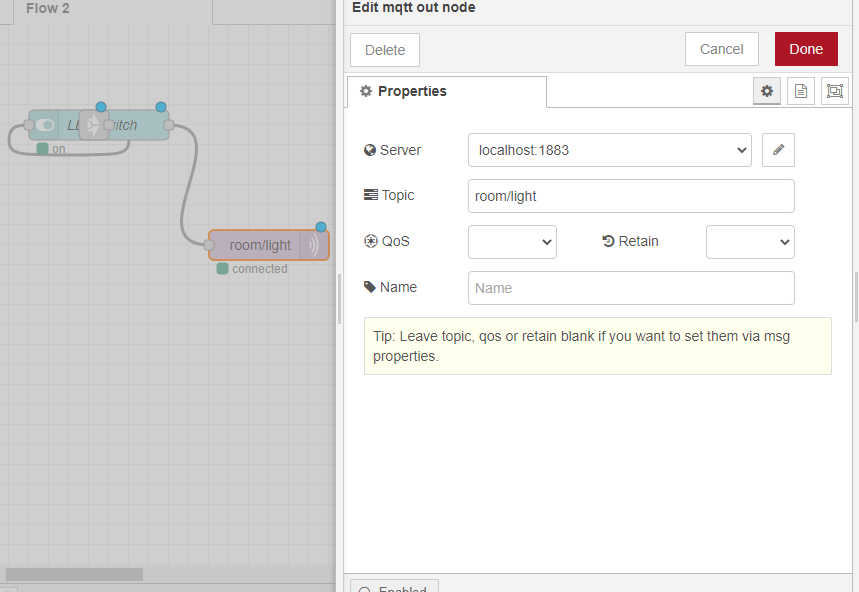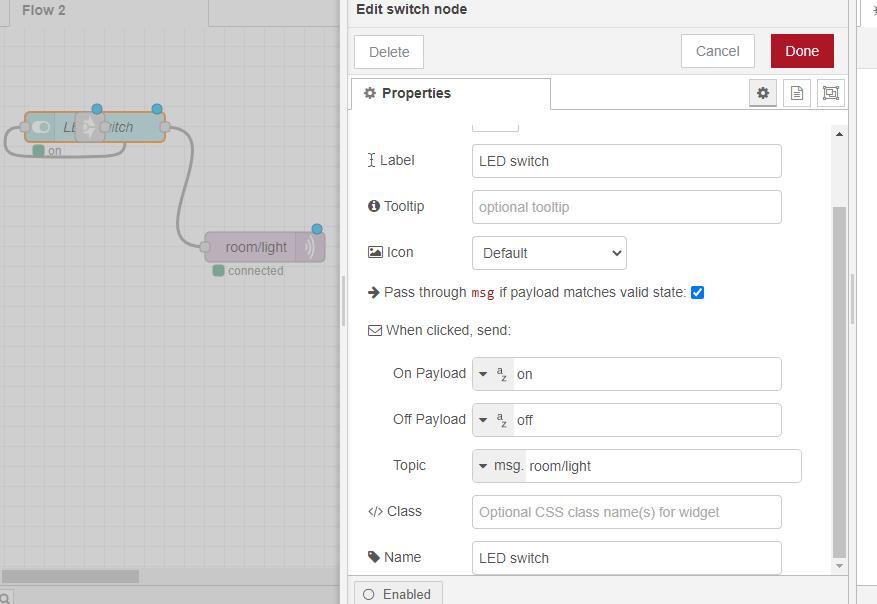@salmanfaris Actually, I can't connect my NodeMCU device with the localhost server. I can establish a connection using the test.mosquitto.org server.
This is my required case: YouTube link
Posts made by sivanath
-
RE: Can't connect NodeMCU with MQTTposted in Arduino
-
RE: Can't connect NodeMCU with MQTTposted in Arduino
@swalahamani I may not be able to come tomorrow. I think we could set up a call. How can I contact you personally?
-
RE: Can't connect NodeMCU with MQTTposted in Arduino
@swalahamani @salmanfaris
I changed my conf file and specified ipv4
And this is the status of the port (from resource monitor):Image: mosquitto.exe PID: 3732 Address: IPv6 loopback Protocol: TCP Port: 1883 Firewall Status: Allowed, not restrictedIt is listening to mosquito..
-
RE: Can't connect NodeMCU with MQTTposted in Arduino
@salmanfaris It was working in CLI, but now it's showing multiple usages at the port

-
RE: Can't connect NodeMCU with MQTTposted in Arduino
@salmanfaris Yes, I had tried that before and it was working fine. Infact, everything works perfectly when I connect with the online mqtt server,
test.mosquitto.org. So, there's some problem with the local installation, while using my local IP. But I can't find that problem. I had also re-installed the mqtt, but still the same issue. -
RE: Can't connect NodeMCU with MQTTposted in Arduino
@salmanfaris It is running locally on my computer. Yes, and is running in the background.

-
Can't connect NodeMCU with MQTTposted in Arduino
I can't establish a connection with my NodeMCU and MQTT server.
I am getting an error of:Attempting MQTT connection...failed, rc=-2 try again in 5 secondsEvery topic name, nodes and other variables are assigned from the given video: Referred video
Below is the code:
#include <ESP8266WiFi.h> #include <PubSubClient.h> // Change the credentials below, so your ESP8266 connects to your router const char* ssid = "Wifi"; const char* password = "Wifi123"; // Change the variable to your Raspberry Pi IP address, so it connects to your MQTT broker const char* mqtt_server = "192.168.1.38"; // Initializes the espClient. You should change the espClient name if you have multiple ESPs running in your home automation system WiFiClient espClient22; PubSubClient client(espClient22); // Lamp - LED - GPIO 4 = D2 on ESP-12E NodeMCU board const int led = 4; //Connect your NodeMCU to your router void setup_wifi() { delay(10); Serial.println(); Serial.print("Connecting to "); Serial.println(ssid); WiFi.mode(WIFI_STA); WiFi.begin(ssid, password); while (WiFi.status() != WL_CONNECTED) { delay(100); Serial.print("."); } Serial.println(""); Serial.print("WiFi connected - NodeMCU IP address: "); Serial.println(WiFi.localIP()); } // This functions is executed when some device publishes a message to a topic that your NodeMCU is subscribed to void callback(String topic, byte* message, unsigned int length) { Serial.print("Message arrived on topic: "); Serial.print(topic); Serial.print(". Message: "); String messageInfo; for (int i = 0; i < length; i++) { Serial.print((char)message[i]); messageInfo += (char)message[i]; } Serial.println(); // If a message is received on the topic room/lamp, you check if the message is either on or off. Turns the lamp GPIO according to the message if(topic=="room/light"){ Serial.print("Changing Room Light to "); if(messageInfo == "on"){ digitalWrite(led, HIGH); Serial.print("On"); } else if(messageInfo == "off"){ digitalWrite(led, LOW); Serial.print("Off"); } } Serial.println(); } // This functions reconnects your ESP8266 to your MQTT broker // Change the function below if you want to subscribe to more topics with your ESP8266 void reconnect() { // Loop until we're reconnected while (!client.connected()) { Serial.print("Attempting MQTT connection..."); if (client.connect("ESP8266Client22")) { Serial.println("connected"); // Subscribe or resubscribe to a topic // You can subscribe to more topics (to control more LEDs in this example) client.subscribe("room/light"); } else { Serial.print("failed, rc="); Serial.print(client.state()); Serial.println(" try again in 5 seconds"); // Wait 5 seconds before retrying delay(5000); } } } // The setup function sets your ESP GPIOs to Outputs, starts the serial communication at a baud rate of 115200 // Sets your mqtt broker and sets the callback function // The callback function is what receives messages and actually controls the LEDs void setup() { pinMode(led, OUTPUT); Serial.begin(115200); setup_wifi(); client.setServer(mqtt_server, 1883); client.setCallback(callback); } // For this project, you don't need to change anything in the loop function. Basically it ensures that the NodeMCU is connected to MQTT broker void loop() { if (!client.connected()) { reconnect(); } if(!client.loop()) client.connect("ESP8266Client22"); }


